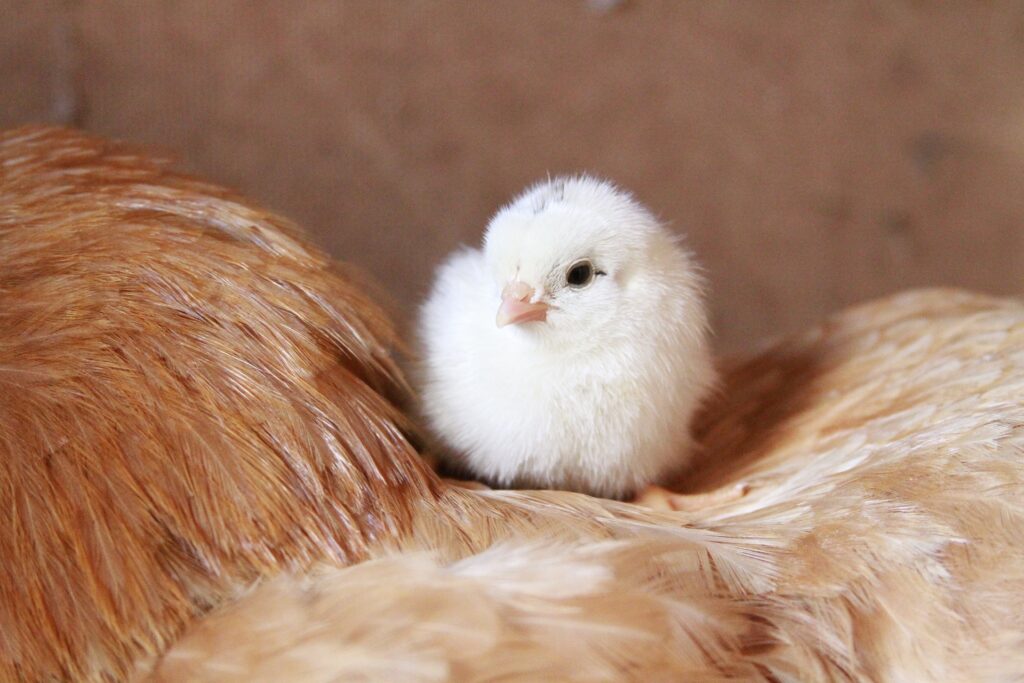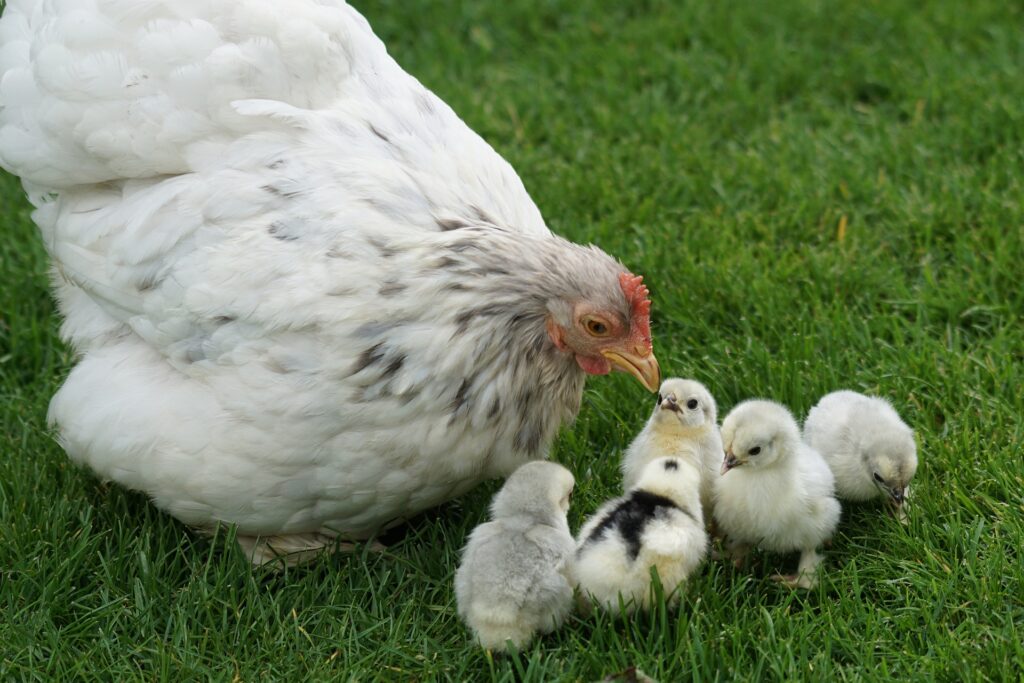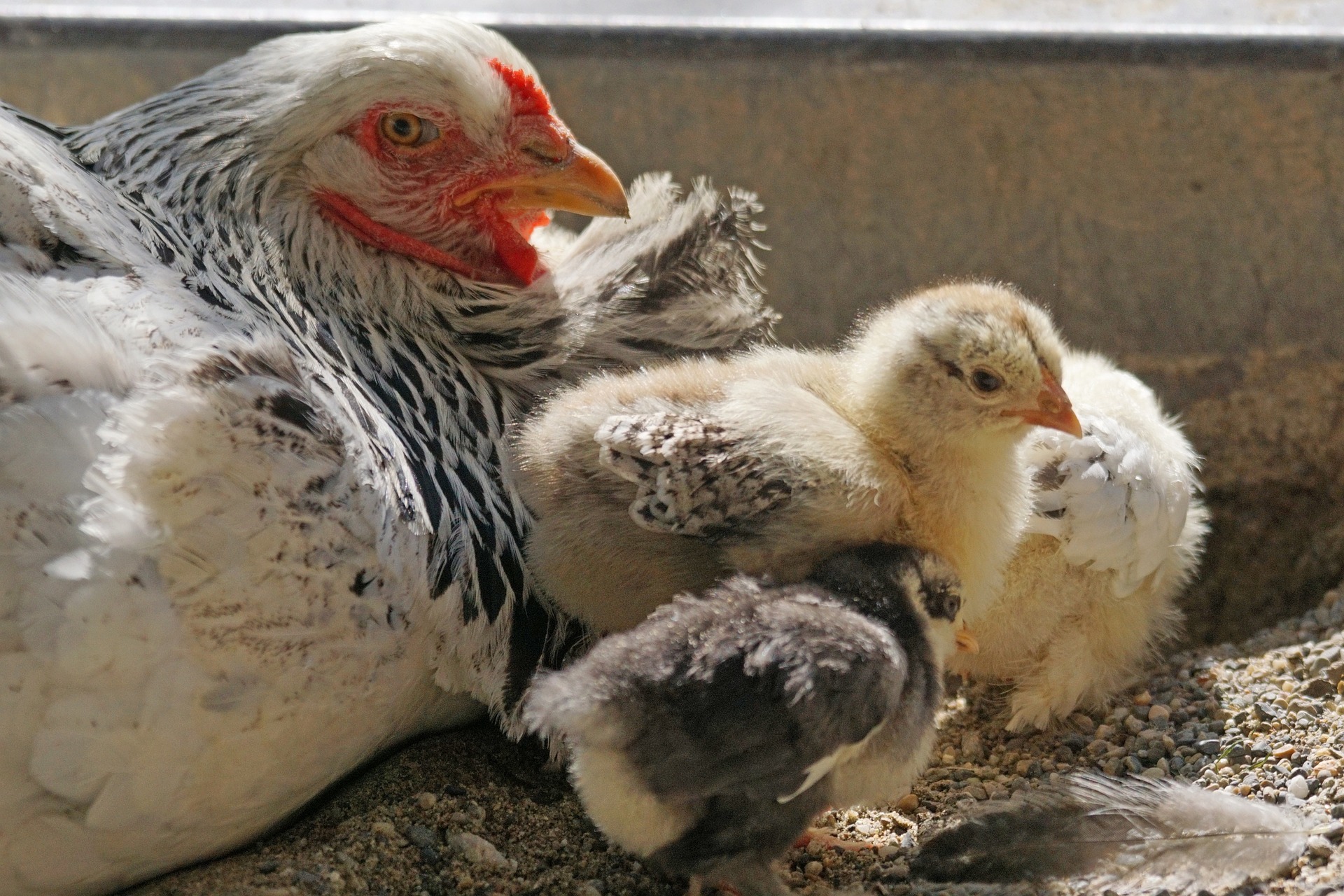Embarking on the journey of raising a hen with her chicks in your backyard brings a sense of fulfillment and excitement. It’s a natural spectacle: the mother hen nurturing her young, teaching them the ways of the world. This comprehensive guide is designed to help backyard poultry keepers navigate through the essentials of caring for a hen and her brood, ensuring their collective health, safety, and happiness. A raising Hen with Chicks is very fun to watch!
You may also want to read about the best bedding for baby chicks.
Understanding the Hen and Chick Relationship
The relationship between a hen and her chicks is both fascinating and vital. The mother hen plays a crucial role in guiding and protecting her chicks, teaching them vital survival skills. Understanding this bond is key to successful rearing.
Choosing the Right Breed
When starting out, the choice of breed is crucial. Here are some considerations:
- Breed Characteristics: Some breeds, like Silkies and Cochins, are known for their excellent mothering skills. Others might be less inclined to brood.
- Space Requirements: Breeds vary in size and space needs. Larger breeds will require more room.
- Climate Suitability: Make sure the breed you choose is comfortable in your local climate conditions.

Preparing for the Arrival of Chicks
Setting Up a Safe Brooding Area
A safe, comfortable brooding area is essential:
- Warmth and Comfort: A brooder with a heat lamp replicates the warmth the chicks would receive from their mother.
- Safety Measures: Ensure the brooding area is secure from predators and safe for the chicks.
- Space Considerations: As chicks grow, they’ll need more space. Plan for their growth from the start.
Nutrition and Feeding
Proper nutrition is crucial:
- Feeding the Hen: Opt for high-quality feed to support the hen during this demanding period.
- Chick Starter Feed: Provide specialized feed designed for chicks’ rapid growth and development.
- Access to Clean Water: Both hen and chicks should always have access to fresh, clean water.
Monitoring Health and Development
Regular health checks and monitoring growth are vital:
Regular Health Checks
- Signs of Illness: Keep an eye out for any symptoms of sickness in both hen and chicks.
- Preventative Care: Regular deworming and vaccinations are important to prevent common poultry diseases.
Tracking Growth Milestones
- Physical Development: Monitor their weight gain and feather development.
- Behavioral Signs: Changes in behavior can indicate stress or illness.
Protecting Against Predators
Ensuring the safety of your flock is paramount:
- Secure Housing: Reinforce your coop to protect against common predators like foxes and raccoons.
- Vigilance: Regularly inspect your coop for any signs of attempted intrusions.

Managing the Flock Dynamics
Integration with Other Birds
When introducing chicks to the existing flock:
- Introduce Gradually: Allow time for both the chicks and the older birds to adjust.
- Monitor Interactions: Be vigilant for signs of bullying or aggression.
Understanding Pecking Order
Pecking order is a natural occurrence in poultry:
- Natural Hierarchy: Learn how to manage and mitigate issues arising from the flock’s hierarchy.
When to Wean the Chicks
Identifying when chicks are ready to be independent:
- Signs of Independence: Observe when chicks start to explore and eat on their own.
- Separation Process: Gradually wean the chicks from their mother, ensuring a smooth transition.
Conclusion
Raising a hen with her chicks is a commitment that requires dedication, understanding, and responsiveness to their unique needs. By adhering to these guidelines, backyard poultry enthusiasts can foster a healthy and harmonious environment for their feathered family. Remember, every hen and brood is unique; staying observant and adaptable is key to your success as a poultry keeper.

